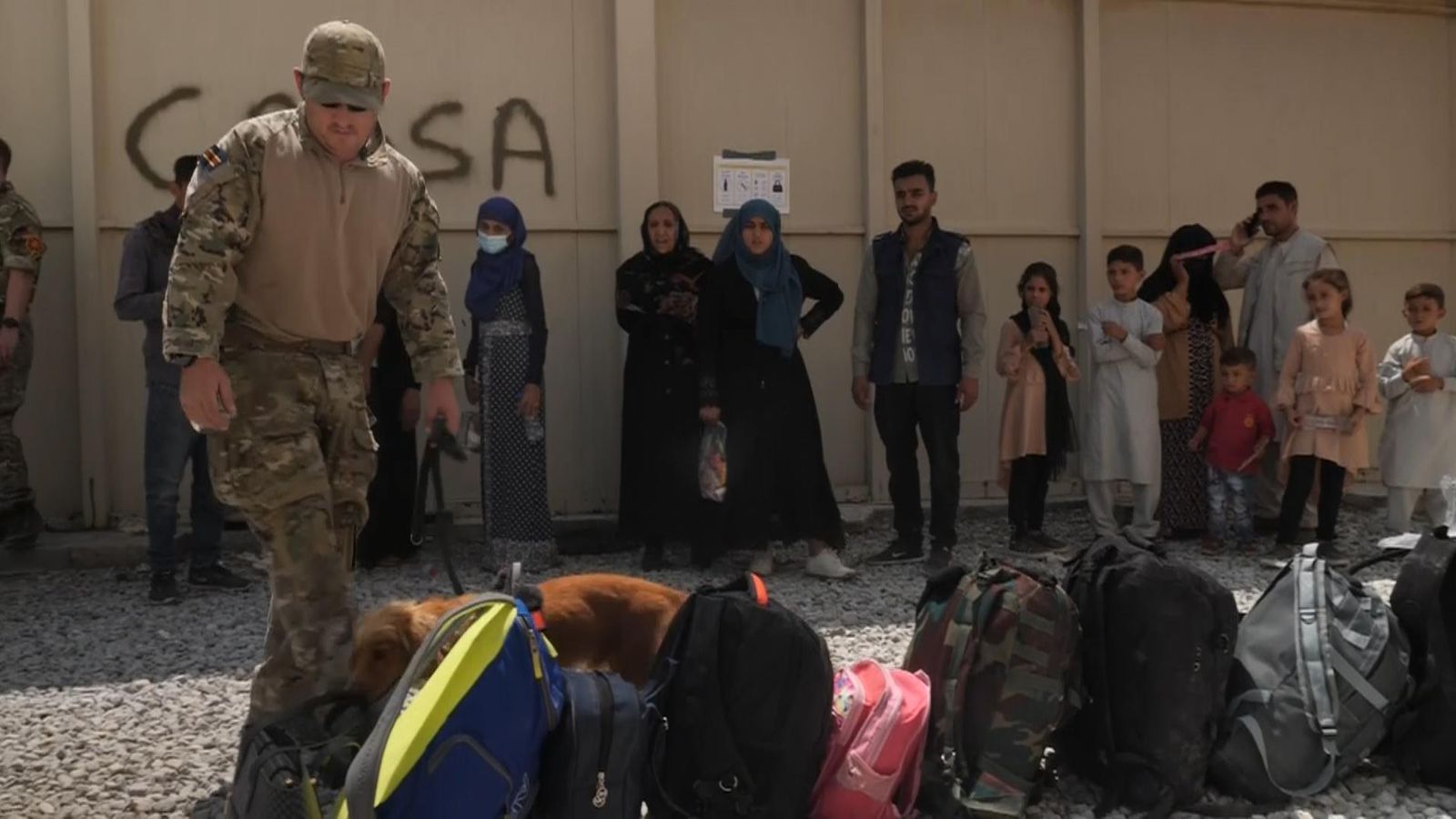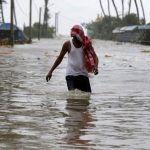Growing security concerns in Afghanistan could well sink any diplomatic drive by the UK to delay a US deadline to withdraw troops from the country and prolong an evacuation effort.
British officials, up to the prime minister, have been seeking push back the exit date beyond next Tuesday to allow more time to airlift thousands of Afghans to safety who have worked with UK forces and others who are deemed at particular risk from the Taliban.
France is also keen to secure more time.
US President Joe Biden has yet to decide whether to alter his course – a topic that is set to feature in an emergency meeting of G7 powers, chaired by Boris Johnson, on Tuesday.
But such a move would risk direct conflict with the Taliban, which has said the presence of US or other allied forces beyond 31 August would be a red line that would incur consequences.
US officials are in daily talks with the Taliban, whose approval is needed to be able even to conduct the many evacuation flights that America, the UK, and multiple other nations have been facilitating since Kabul fell to the one-time insurgents just over a week ago.
It is unclear whether the Taliban, focused on forming a new government, will want to start a new violent confrontation with US-led forces if their “red line” is breached.
Though that will of course be a serious risk.
But a potentially graver threat – even if concerns about the Taliban can be mitigated – is posed by terrorist groups operating in Afghanistan like Islamic State and al-Qaeda.
British ministers and officials have warned that Islamic State Khorasan – the name of the ISIS affiliate in the country – could target UK and US forces overseeing the evacuation at Kabul Airport with suicide bombers.
Another risk is from militants trying to exploit the evacuation scheme to travel to the UK and commit acts of terror.
Sky News revealed on Monday a person on Britain’s no-fly list – designed to block individuals who are considered a security risk from travelling to the country – had been flown into Birmingham on an evacuation flight.
Please use Chrome browser for a more accessible video player
The government ultimately deemed that person not to be a threat.
But in a sense of the challenge facing officials as they process applications from Afghans seeking to flee Kabul, the number of “hits” on the watchlist over the past week – while still only a tiny handful – is more than would normally be expected in a year.
Follow the Daily podcast on Apple Podcasts, Google Podcasts, Spotify, Spreaker
Successive prime ministers have cited as one of the key gains from the war in Afghanistan the fact there has been no act of terrorism directed from that country towards the West since the September 11 attacks in 2001 that triggered the US-led invasion in the first place.
Such a claim would ring hollow if the evacuation effort prompted by the failed conclusion of their intervention led directly to a terrorist atrocity on UK soil.
While Britain and its allies have a moral duty to ensure all Afghans who risked their lives to support the US-led mission in Afghanistan are flown to safety, they will be balancing this obligation against the fundamental requirement to protect national security.






















